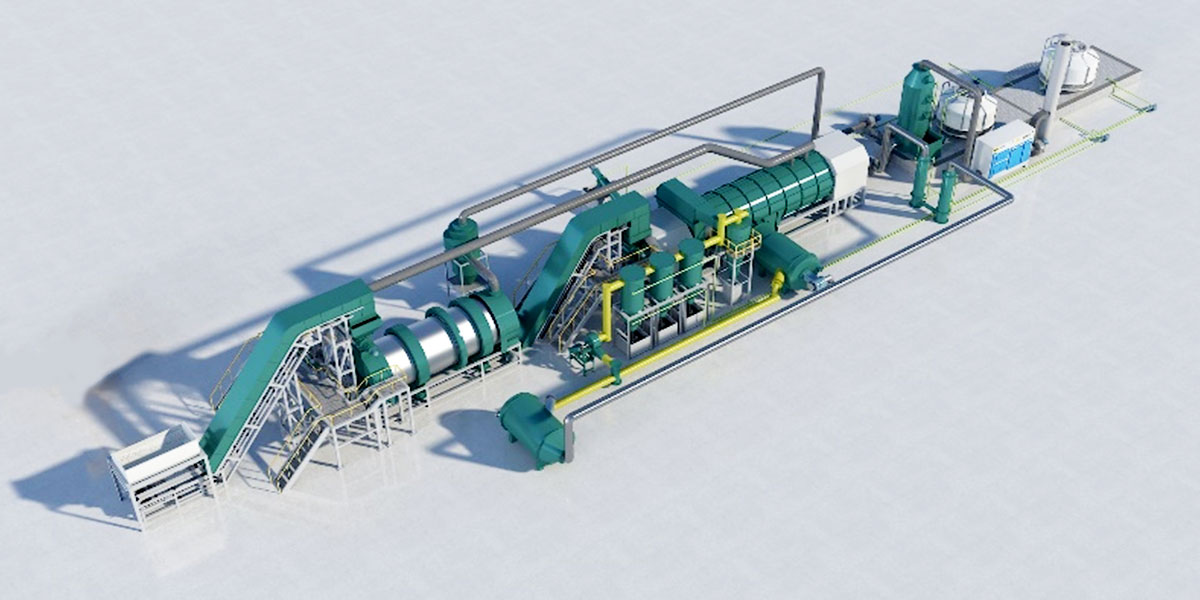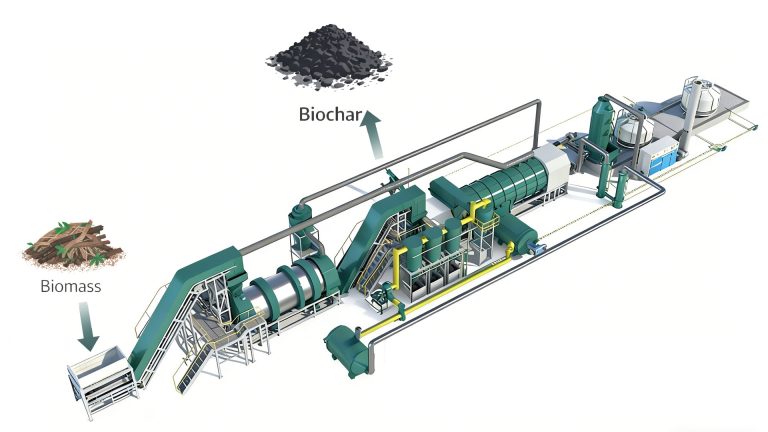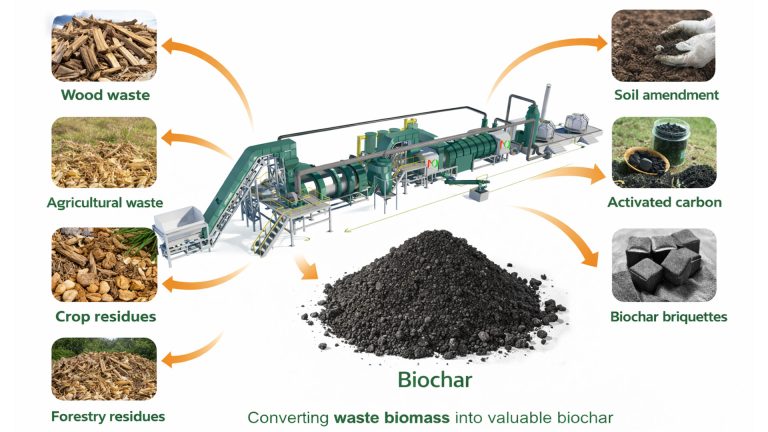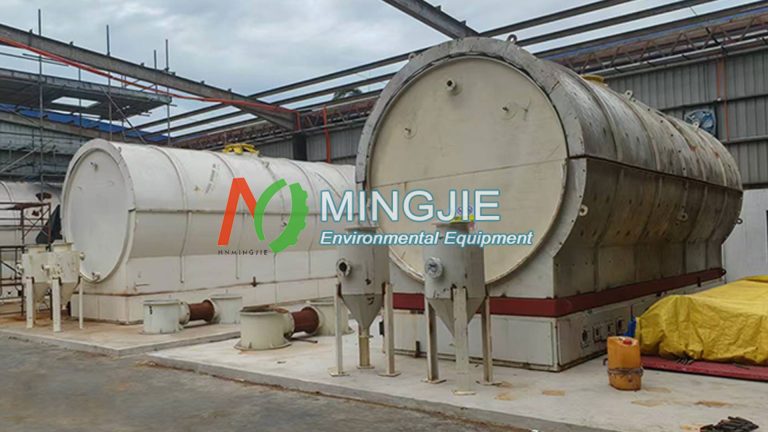A biochar plant uses pyrolysis technology to convert waste biomass into biochar. Biochar is a carbon-rich solid formed by the high-temperature pyrolysis of waste biomass in an oxygen-free or anoxic environment. It has a high carbon content, a rich pore structure, a large specific surface area, and a high number of oxygen-containing active groups on its surface. These properties make biochar a versatile material, capable of improving soil quality, adsorbing pollutants, sequestering carbon, and reducing emissions.
In recent years, biochar plant has shown increasing promise in agriculture, environmental governance, and climate change mitigation. Biochar is not only a soil conditioner, but also a key carbon dioxide removal (CDR) technology.
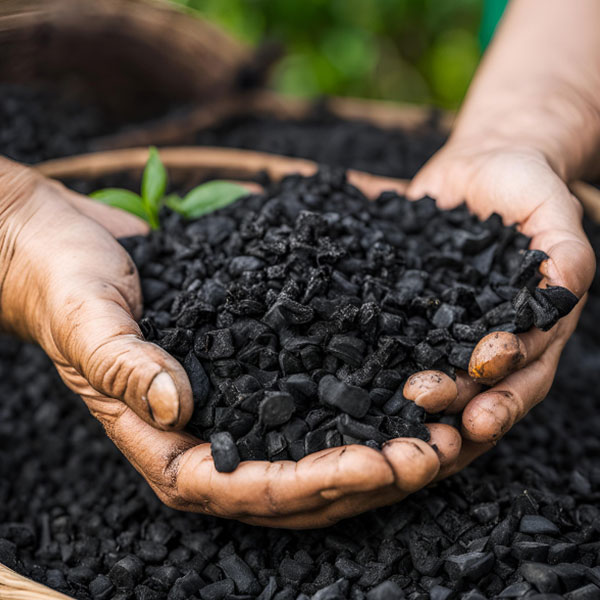

In actual production, Biochar Plant will select the appropriate pyrolysis method based on different needs and feedstock characteristics. For example, if the main purpose of biochar plant is to produce biochar for soil improvement, slow pyrolysis may be selected. If the focus of biomass pyrolysis is more on obtaining bio-oil as an energy source or chemical feedstock, then fast pyrolysis may be a better choice.
Biochar Plant Applications in Agriculture and Environment
The application of biochar production plant in agriculture and the environment continues to expand, and its benefits are supported by more scientific data.
Improving soil health and crop yields: Long-term studies have shown that repeated annual biochar application can consistently increase crop yields (globally, an average increase of approximately 10.8%), reduce greenhouse gas emissions (CH₄ -13.5%, N₂O -21.4%), and significantly boost soil organic carbon (SOC) accumulation (+52.5%). Biochar improves soil structure, enhances water and fertilizer retention, and provides habitat and nutrients for soil microorganisms.
Effectively deactivates soil heavy metals and removes pollutants: Due to its rich pore structure and large specific surface area, biochar can effectively adsorb and immobilize heavy metals in the soil, reducing their bioavailability. Studies have also found that biochar removes microplastics from agricultural runoff at rates as high as 86.6% to 92.6%.
Contributing to carbon sequestration and climate change mitigation: Due to its stability, biochar can sequester carbon in soil for long periods of time (hundreds or even thousands of years). It is one of the five most effective long-term carbon sequestration and negative emissions solutions recognized by the Intergovernmental Panel on Climate Change (IPCC). Global model calculations show that if 70% of straw is converted into biochar, the annual carbon removal potential can reach 2.01 Pg CO₂-eq, equivalent to offsetting 4.6% of global fossil fuel emissions.
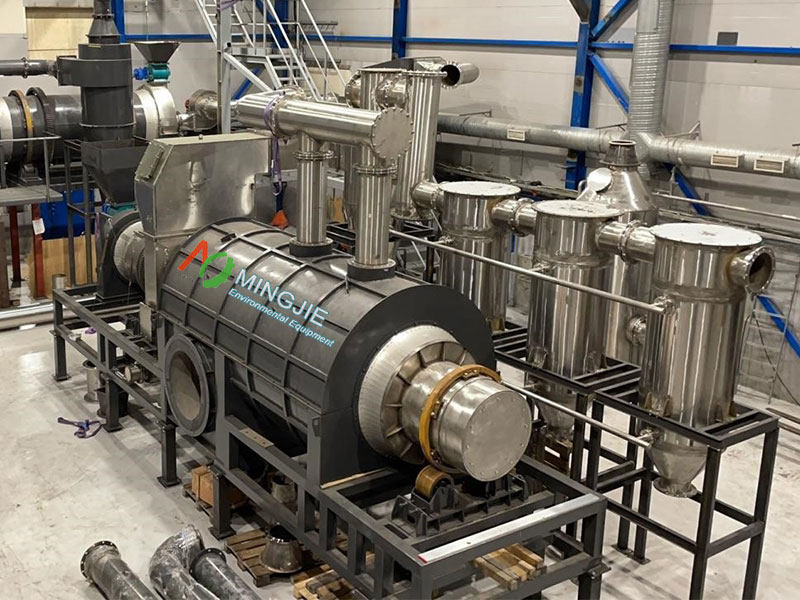
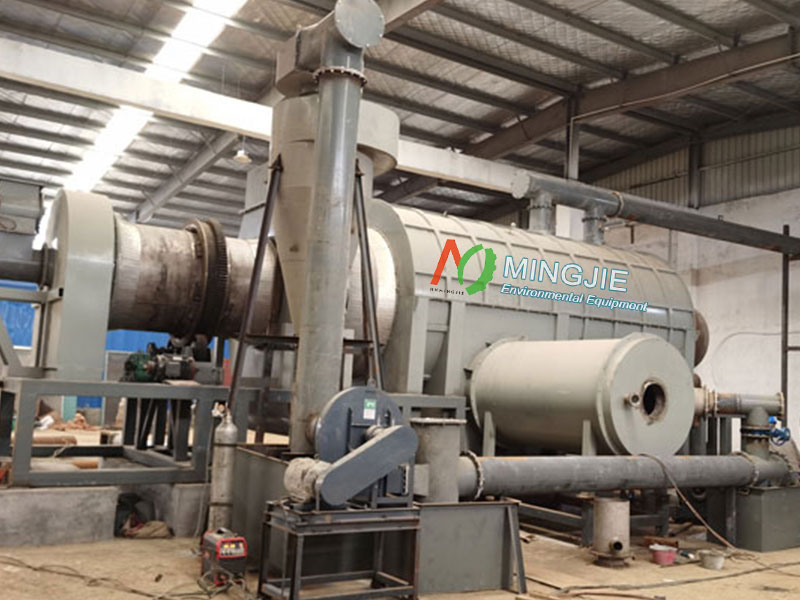
Global Biochar Production Industry
With growing global attention to sustainable development and environmental protection, the biochar industry has seen significant growth in recent years. According to research by Betzers, global biochar market revenue is estimated to reach $451 million in 2024, a 16.19% increase from 2023. The market is expected to grow further to $971 million by 2029. Global biochar production is also increasing annually, its applications are expanding, and market demand continues to grow.
Biochar production plants are being actively constructed and operated worldwide. The United States, one of the leading countries in the biochar industry, boasts numerous biochar plants.
Cool Planet, a US-based company, uses biomass pyrolysis technology to convert waste biomass into biochar and bio-oil. Its biochar products are widely used in agriculture for soil improvement and crop yield improvement.
In Europe, biochar plants are also operating in countries such as Germany and the United Kingdom. These biomass carbonization plants not only process local biomass waste but also provide biochar products to surrounding areas, promoting the development of local agriculture and environmental protection.
In China, the biochar industry is also showing positive development momentum. In 2022, my country’s biochar production reached 36,100 tons, demand was approximately 34,900 tons, and the market price was approximately US$384.46 per ton.

